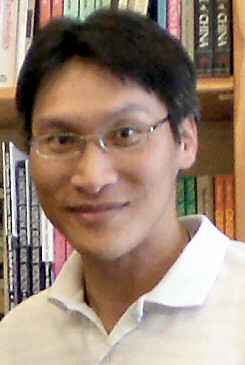
Meiya Bledsoe
A crowd of UCSB students filled the MultiCultural Center theater for a live screening of Breathin’: The Eddy Zheng Story, on Wednesday, Nov. 15. Directed by documentary maker Ben Wang, the film recounts the story of Eddy Zheng. At the age of 16, Zheng had been in America for 3 ½ years before he was convicted of Residential Robbery, a crime that caused the young man to lose two decades of his life to imprisonment.
The screening began with a seven minute short film, also directed by Wang. Titled Ke’s Restaurant, the film depicts an ex-con living his life after imprisonment as one of the 10,000 Vietnamese Americans in deportation limbo, even after serving his time in jail.
The angles of the camera provided very organic imagery to illustrate Ke’s lifestyle after his release. The normalcy in his actions and tone was expressed through his appreciation for food as a place of home, being able to take care of oneself is a right, and unfortunately becomes a privilege.
Both films by Wang show the protagonists’ thoughts on the importance of being able to carry culture and find freedom no matter your location. There is an emphasis on the “importance of mental freedom to become physical freedom, [and] it takes work, invest in yourself.” Whether it be through cooking, volunteering, or meditating, it is important for humans to be able to take time for themselves.
Breathin’ exposes the vulnerability and the strength involved with moving to America. As common within many immigrant families, Zheng and his siblings were alone at home while their parents worked long hours to provide for their family. Unfortunately, it was in that independence that Zheng fell in with the wrong crowd and became involved with gangs.
Various Asian ethnicities and Pacific Islanders are considered to be a part of the “others” population, or the outsiders. Many of the imprisoned are not visited by their families; jail is culturally shameful, they are given no family support and many times, kept a secret from the rest of the family. This isolation from society leads to an isolation within the prison system itself. Zheng led the act to expand Asian studies and education to be a curriculum within the prison systems.
“I am who I am today because the community gave me a second chance,” Zheng professed to the audience.
The biographical journey through Zheng’s life concluded with a Q&A session between Zheng, Wang, and professor David Fowler of the UCSB department of Asian Language and Religion.
Director Wang met Zheng at the University of California, Davis, directly before he was sent to solitary confinement. From UCD, students have the opportunity to visit San Quentin State Prison in Marion County.
“Breathing means to me don’t take anything [in life] for granted,” Zheng said during the Q&A.
Freedom4Youth is an on campus group that advocates for juvenile offenders. Its meetings are at 6:30 p.m. on Wednesdays in the UCen.










